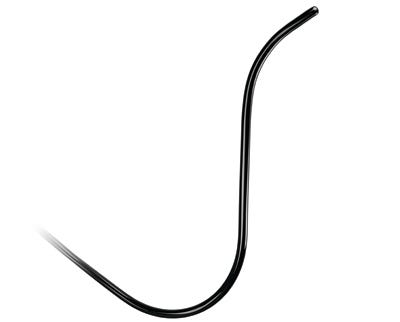Covidien Recalls HydroFinity Hydrophilic Guidewires
June 24, 2014
AA voluntary recall of HydroFinity Hydrophilic Guidewires was been announced by Nitinol Devices & Components Inc., which shares the same Fremont, CA address as Johnson & Johnson's Nitinol Development Corp. subsidiary, and Covidien.
The HydroFinity Guidewire is a nitinol-core, polymer-jacketed guidewire with a hydrophilic coating intended for use in catheter placement and other procedures to treat vascular diseases. Developed and manufactured by NDC, the devices are distributed by Covidien.
According to the companies, the guidewires are being recalled due to two reports of the outer polymer jacket to the core wire being damaged when the guidewire was withdrawn rapidly through certain delivery catheters, and another ten cases where the product was less severely damaged during use.
The recall notice explains that "(d)amage to the jacket can result in embolization of polymer, potentially leading to vessel occlusion or damage. Vessel occlusion may necessitate surgical intervention to resolve. Two cases were reported where the polymer jacket separated from the device and embolized. One case required surgical intervention."
|
The recalled hydrophilic guidewire was designed for for use in catheter placement. |
Covidien alerted customers by letter on June 3, 2014, and is recalling all the product. The device had only been launched on February 17.
The U.S. FDA and regulatory agencies in Canada and in several European countries have been notified. The companies have asked U.S. customers to report any problems with the device to the FDA's MedWatch Safety Information and Adverse Event Reporting program. Unused product should be returned to Covidien. FDA published notification of the recall on June 20, but as of June 23 had not yet determined the recall class.
Refresh your medical device industry knowledge at MEDevice San Diego, September 10-11, 2014. |
On April 1, Covidien had to recall more than 650 units of its Pipeline Embolization Device and Alligator Retrieval Device. "Delamination of the [polytetrafluoroethylene] coating could potentially lead to embolic occlusion in the cerebral vasculature with the risk of stroke and/or death," the company said in a statement. Although the coating problems appear similar, it isn't clear whether there is a connection between the two recalls. The earlier recall was given a Class 1 designation.
Stephen Levy is a contributor to Qmed and MPMN.
About the Author(s)
You May Also Like



.png?width=300&auto=webp&quality=80&disable=upscale)